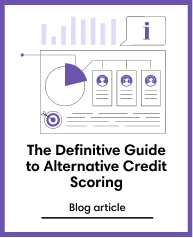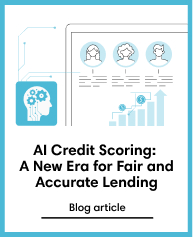Credit Scoring
Jan 18, 2022
How alternative scoring helps Neobanks and Challenger Banks
Subscribe to our newsletter
Technology has revolutionised financial systems allowing new players such as Neobanks and Challenger Banks to rise. These fintech companies have come about as 100% digital and lay the foundations for the banking sector's future.
Neobanks are financial entities without branch offices. They are not banks but work as a connection between these and their clients with entry and exit barriers lower than those in traditional banking. For example, most Neobanks allow you to open an account only with your ID and a photograph or a video call that verifies your identity. Likewise, opening and maintenance costs are much lower than in traditional banking, and generally, people have the freedom to close their accounts within minutes.
Challenger banks are Neobanks with a banking license. Many of the Challenger banks were initiated as Neobanks, and as they grew, they obtained the licences that allow them to offer the same products as traditional banks, such as credit cards.
Neobanks originated in the UK and Germany with the prospect to conquer millennials, young people born between 1981 and 1986, who grew up alongside technological advances and a hyper-connectivity context and preferred to operate independently, without having to queue in a bank branch office. Nowadays, fintech companies are looking to reach out to a new audience, centennials, young people between 17 and 22 years, with new products adapted to their age.
Ualá, for example, is a Fintech company with origins in Argentina that allows people to manage their personal finances through the app and a card and offers a prepaid Mastercard to people over 13 years. Likewise, Nubi, Argentinian fintech, extends a prepaid Visa card to minors between 13 and 17 years.
The goal of these new fintech companies is to democratise access to banking products and simplify the user’s experience, allowing clients to carry out their procedures most quickly and easily through an easy to use toolset. Nevertheless, launching new products and opening to new segments can also cause significant losses of time and money if these innovative companies don’t know their prospects deeply. This is where new alternative scoring systems come in.
Alternative scoring allows fintech companies to discover new sources of unexploited data to reduce risk while entering a new market. Alternative data, which comes from endless sources, is analysed by artificial intelligence algorithms to obtain behavioural models in real-time and predict future attitudes. In this way, Neobanks and Challenger Banks can continue exploring new business opportunities and audiences, avoiding potential losses.
Learn more about what the future of Neo and Challenger Banks looks like.





